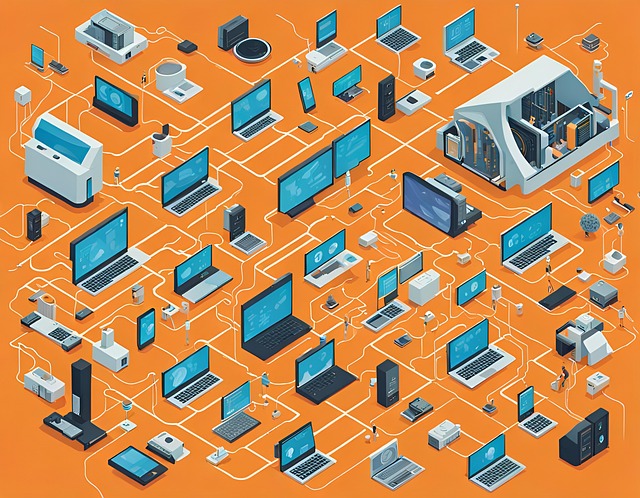AI productivity coaching revolutionizes car repair shops by automating routine tasks, leveraging analytics for parts management and pricing, and enhancing overall efficiency. This strategic implementation, focusing on diagnostics, inventory, and scheduling, requires data gathering, staff training, and pilot testing. Continuous monitoring using KPIs like revenue growth, job completion rates, and customer satisfaction measures the success of AI coaching, demonstrating its impact on auto shop profitability and competitiveness in the modern market.
In today’s digital era, AI productivity coaching is transforming car repair shops into more efficient and profitable businesses. This article delves into the innovative concept of using artificial intelligence to optimize operations at auto shops. We explore the benefits of AI coaching, provide a step-by-step guide to implementation, and share strategies for measuring its impact on profitability. By leveraging AI, auto shop owners can enhance decision-making, streamline processes, and ultimately boost their bottom line.
- Understanding AI Coaching and Its Benefits for Auto Shops
- Implementing AI in Car Repair Operations: A Step-by-Step Guide
- Measuring Success: Strategies for Tracking AI Coaching Impact on Profitability
Understanding AI Coaching and Its Benefits for Auto Shops

AI coaching, specifically tailored for car repair shops, is revolutionizing how businesses operate and enhancing their overall efficiency. This innovative approach leverages artificial intelligence to provide personalized guidance, enabling auto shop owners and managers to streamline their processes and boost profitability. By offering AI productivity coaching, shops can optimize their operations, from scheduling appointments to managing inventory, resulting in improved customer satisfaction and increased revenue.
The benefits of AI coaching for auto shops are multifaceted. It automates routine tasks, freeing up valuable time for technicians to focus on complex repairs. Advanced analytics enabled by AI help identify trends, allowing shops to anticipate parts requirements and reduce waste. Furthermore, AI-driven insights can optimize pricing strategies, ensuring competitive rates while maintaining healthy profit margins. With AI coaching, car repair shops can stay ahead of the curve, offering efficient services that meet the demands of modern customers.
Implementing AI in Car Repair Operations: A Step-by-Step Guide

Implementing AI in car repair operations involves a strategic, step-by-step approach to maximize its benefits and ensure successful integration. Start by identifying key areas where AI can enhance efficiency and profitability, such as diagnostics, parts inventory management, and scheduling. Next, assess existing systems and workflows to understand compatibility with new AI tools and the required infrastructure for seamless implementation.
Invest in high-quality data collection and preparation, as accurate and comprehensive datasets are crucial for effective AI performance. Train your staff on new processes and tools, fostering a culture of continuous learning and adaptation. Pilot test AI solutions in a controlled environment before full-scale deployment, allowing for adjustments and ensuring optimal outcomes. Continuously monitor and analyze the impact of AI, using data to refine processes and optimize auto shop profitability through enhanced productivity.
Measuring Success: Strategies for Tracking AI Coaching Impact on Profitability

Measuring success is a critical component of any training program, and AI coaching for car repair shops is no exception. To evaluate the impact of AI productivity coaching on auto shop profitability, several key performance indicators (KPIs) should be tracked. These metrics include sales revenue growth, job completion rates, and labor costs per repair. By comparing these KPIs before and after implementing AI coaching, shop owners can gain insights into the program’s effectiveness in enhancing operational efficiency and profitability.
Additionally, customer satisfaction ratings and retention rates are essential factors to consider. Improved AI-driven processes can lead to faster service times and higher-quality repairs, ultimately boosting customer loyalty. Tracking these changes over time allows for a holistic understanding of how AI coaching contributes to the overall health and success of the car repair shop.
AI coaching is transforming car repair shops by enhancing productivity and profitability. By implementing AI in operations, shops can streamline processes, reduce errors, and improve customer satisfaction. Following a structured guide and tracking key performance indicators (KPIs), auto shops can maximize the benefits of AI coaching. Ultimately, embracing this technology allows for more efficient, profitable, and future-ready car repair operations.
